Think about the last time you shopped online. Maybe you found a product you liked, but it wasn’t exactly what you wanted. You were looking for something more personal, something that fit your style.
This is where product customization comes in. Increasingly, customers are seeking personalized options.
59% of online shoppers are more likely to purchase from a brand or merchant that offers product customization.
marketingweek
This growing demand is hard to ignore.
In today’s blog, we’ll explore the unique benefits of eCommerce product customization and how you can use this approach to grow your business.
What is Product Customization in eCommerce?
Product customization in eCommerce refers to the ability for customers to personalize or modify products to their specific preferences before purchasing online.
This can be selecting colors, sizes & materials, adding engravings, or even designing products from scratch. Ultimately, it allows customers to co-create products that meet their unique needs.
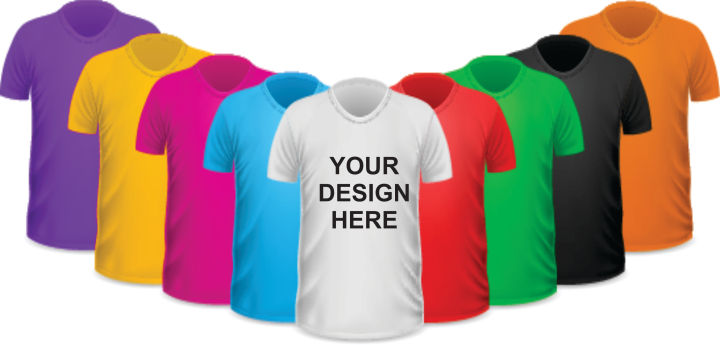
For example, you can sell customized T-shirts in your online store. Instead of picking from pre-designed options, customers can choose the shirt color and add a custom message.
This gives the product a personal touch and makes it stand out.
Here are some popular business niches that offer customized products:
- Fashion & Apparel: T-shirts, hoodies, and jackets with custom designs, names, or logos.
- Jewelry: Custom rings, bracelets, and necklaces with engravings, birthstones, or personalized designs.
- Gifts: Personalized mugs, photo frames, and blankets with names, quotes, or images.
- Home Décor: Custom pillows, wall art, and furniture with unique designs or family names.
- Sports: Custom team jerseys, sports gear, and accessories with player names or logos.
With the growing demand for personalized products, it’s clear that customization is no longer just a trend. Let’s take a closer look at the key benefits it can bring to your business.
Why Product Customization Matters
If you’re struggling to stand out in a crowded eCommerce market, product customization might be exactly what you need.
There are plenty of reasons why offering customization is important for your business. Here are some of the top ones:
1. It Increases Customer Loyalty
When customers personalize a product, they feel more connected to it. As a result, they are more likely to return. 80% of consumers are more loyal to brands that offer personalized products.
2. It Improves Customer Insight
Customized products give you valuable data on customer preferences. This helps you understand what your customers want and how to market to them more effectively.
3. It Makes Products More Attractive
Customized products feel more special to customers. This emotional connection makes them more likely to buy. 72% of consumers say they are more likely to buy when they can personalize a product.
4. It Increases Your Profits
Personalized products often lead to higher sales. Customers are willing to pay more for items they can customize. Offering customization can result in higher average order values.
5. It Boosts Word-of-Mouth Marketing
Customers are likely to share their customized products with others. This leads to more referrals and helps spread the word about your brand.
6. It Reduces Inventory Costs
Customization helps reduce overstocking. You only produce what’s needed, cutting down on excess inventory and saving on storage costs.
How to Start an eCommerce Business with Customized Products
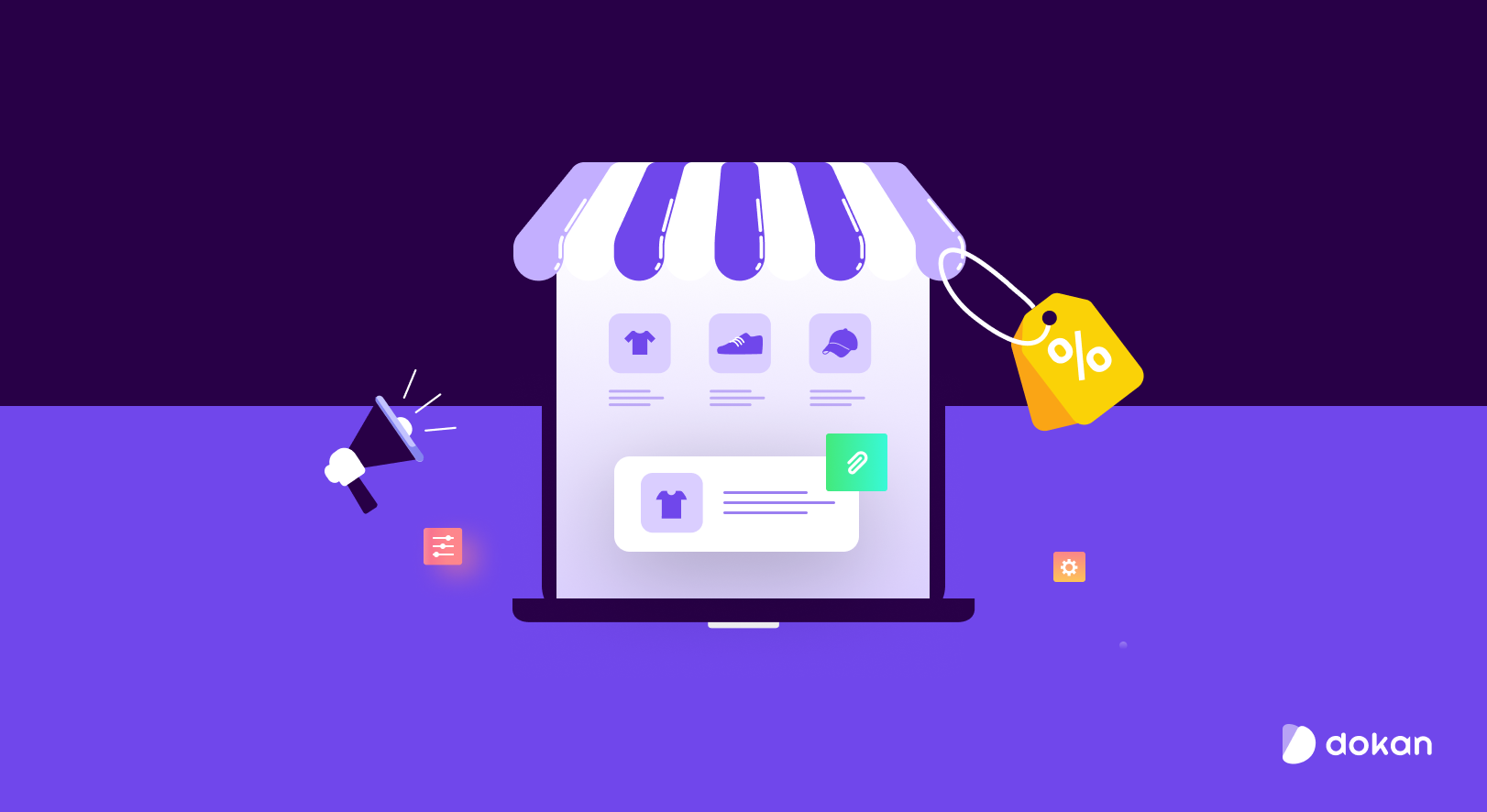
Now that we know why product customization is important, let’s explore how you can add it to your eCommerce business. Here are some practical steps to get started:
1. Choose a Niche
Before you dive into offering customized products, it’s essential to define a niche that aligns with your business vision. A niche is a specialized segment of the market that focuses on a specific group of customers with shared interests or needs.
Think carefully about the types of products you want to offer.
Home décor is another popular niche for customization. In this wing, you’ll find products like personalized wall art, custom pillows, and engraved furniture.
Choosing the right niche helps you target the right audience. If you’re too broad, it will be harder to connect with customers who are looking for something specific.
For example, a store selling custom wedding gifts will attract a completely different audience than one offering personalized pet accessories.
2. Set Up an Online Store
Once you’ve chosen your niche, the next step is setting up your online store. The platform you choose will play a significant role in offering customized products effectively.
Dokan Cloud is a powerful platform for creating a customized eCommerce site. Choose a clean, user-friendly design that reflects your brand identity. A simple and intuitive interface will help customers navigate your site with ease.
Additionally, ensure your store is mobile-friendly, as many customers prefer to shop from their phones.
Additionally, ensure your store is equipped with secure payment gateways for smooth transactions. Fortunately, Dokan Cloud supports reliable payment integrations, such as PayPal and Stripe. It helps you provide a seamless checkout experience for your customers.
3. Choose Your Customization Options
Once your store is up and running, the next step is deciding how customers can personalize your products. Offering a range of customization options can help attract more customers and increase sales.
For instance, if you’re selling clothing, you can offer choices like custom text, colors, or even graphics. If you’re in the accessories niche, engraving names or initials can be a popular option. The key is to make the customization process simple and clear.
Consider adding a preview feature that allows customers to visualize their design before confirming their order. This improves their confidence in making a purchase. You can also offer additional features, like multiple design templates or product variations, to give customers more flexibility.
Finally, don’t forget to set clear guidelines for customization. For example, specify text character limits or available design colors to avoid confusion or dissatisfaction.
4. Select Reliable Suppliers and Manufacturers
Once you know what kind of customizable products you want to sell, the next step is finding the right people to make them. The quality of your suppliers and manufacturers can make or break your business.
Start by looking for suppliers who specialize in product customization. They should be able to handle printing, engraving, embroidery, or whatever type of personalization your products need. Platforms like Alibaba, Printful, or Printify are great places to start if you’re just testing the waters.
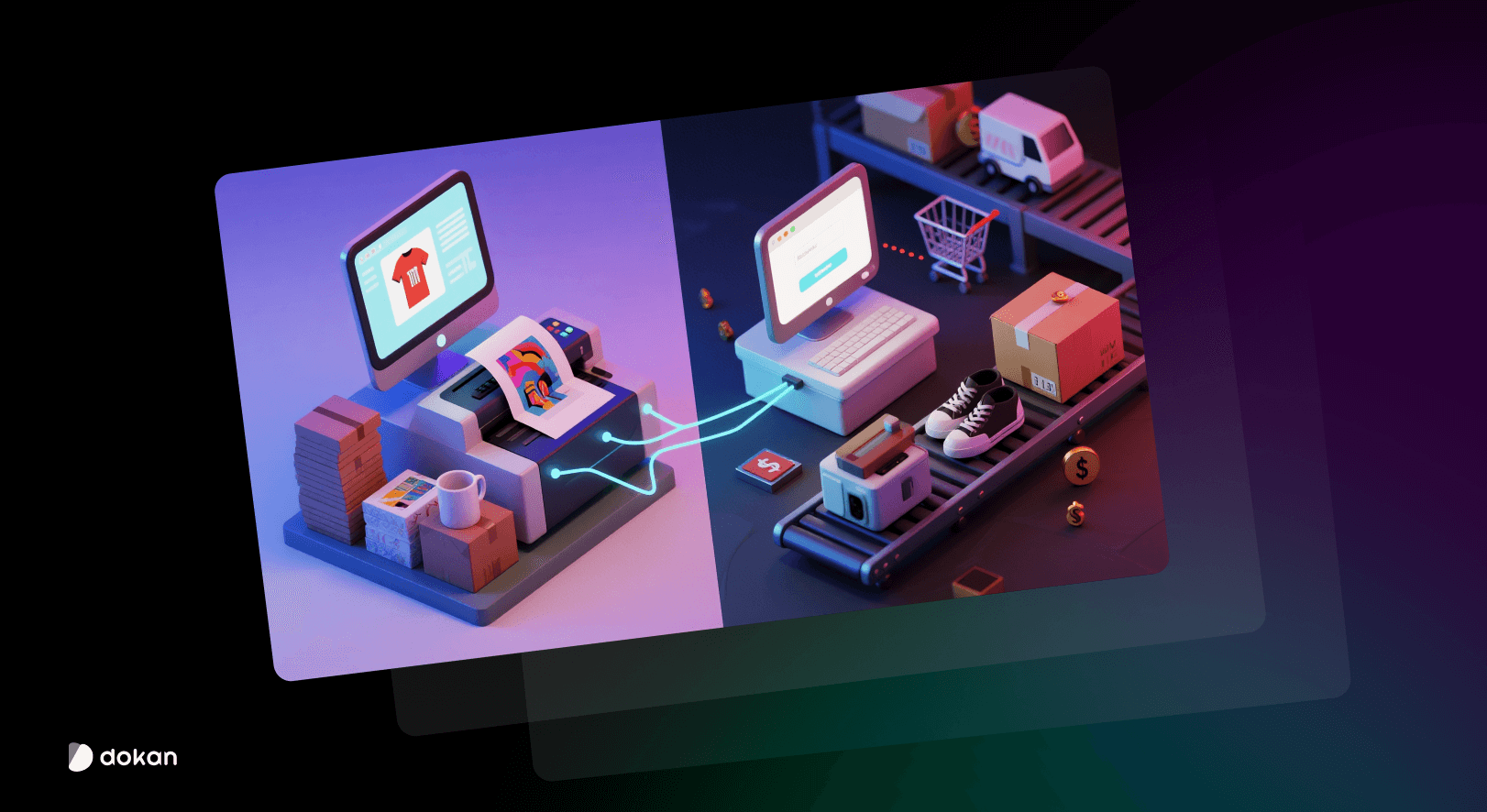
Before finalizing, always ask for samples. This helps you check the product quality, packaging, and accuracy of the customization. You don’t want your customers to be the ones discovering issues first.
Also, pay attention to communication. A good supplier should respond quickly, understand your requirements, and be open to feedback. If communication feels difficult early on, it’s a red flag.
Lastly, think about logistics. Check production times, shipping options, and the ability to scale if your orders increase. A reliable supplier grows with you, not against you.
5. Set Up Efficient Order Fulfillment
Efficient order fulfillment keeps your business running smoothly. For customizable products, it’s even more important since every order is unique.
1. Define Your Fulfillment Process: Plan how an order moves from your store to your supplier and then to your customer. Make sure each step is simple and well-organized.
2. Automate Whenever Possible: Use automation tools to save time and reduce errors. Print-on-demand services like Printful, Gelato, or Printify can automatically handle production and shipping after each order.
3. Track Production and Delivery: Customized items often take longer to produce, so tracking is essential. Monitor timelines and set clear delivery expectations on your website.
4. Communicate Clearly: Send updates to your customers when an order is received, produced, and shipped. Regular communication builds trust and reduces customer uncertainty.
5. Focus on Presentation: Packaging is part of the experience. Add a thank-you card or a small note to make unboxing more personal. These simple touches help turn new customers into repeat buyers.
Efficient fulfillment is not just about speed. It is about creating a smooth, transparent, and pleasant experience from order to delivery.
6. Promote Your Customized Products
Now that your online store is live, it’s time to let people know about it. Marketing helps you reach the right audience, showcase your customized products, and build steady growth for your business.
Start by building your presence on social media. Platforms like Instagram, Facebook, and Pinterest are perfect for showcasing customizable products.
Let’s say you run a store that sells personalized mugs. You could post short videos showing how a customer’s name or favorite quote is printed onto the mug. Share before-and-after photos, or post user-generated content from customers proudly showing off their designs.
These small, authentic moments help people imagine owning something made just for them. And that emotional connection drives sales.
Once you’ve built an audience, you can expand your reach with a few more strategies:
- Run targeted ads on social media or Google to reach people searching for gifts or custom products.
- Offer limited-time discounts to create excitement and encourage quick purchases.
- Use email marketing to stay in touch with your customers and share updates, seasonal offers, or new designs.
- Collaborate with influencers who align with your brand to showcase how your products can be personalized.
Start with one channel, learn what works best, and then scale gradually. Consistency and authenticity will always win over complex strategies.
7. Focus on Customer Service and Support
Providing excellent customer service is key to keeping your customers happy and coming back for more. Since you’re offering customized products, there may be additional questions or concerns that arise, so it’s important to be responsive and helpful.
Make sure your customers have multiple ways to reach you, whether it’s through email, live chat, or social media. Be quick to respond to inquiries and offer clear, helpful answers. If there are any issues with their customizations, address them as soon as possible and offer solutions that make the process easy for them.
You can also set up a FAQ section on your website to address common questions about your customization process, shipping times, and return policies. This can save both you and your customers time by providing immediate answers to common concerns.
A great customer service experience will build trust and encourage repeat business, especially in a field like customized products, where personal connection is key.
8. Monitor Your Performance and Adapt
Your store is live, sales are coming in, and everything seems to be running smoothly. But that’s not the end of the story. Growth happens when you keep learning from what’s already working.
Take a moment each week to look at your numbers. Notice which products people are buying the most and which ones they skip. If something isn’t selling, don’t panic. Try adjusting the price, changing the photos, or rewriting the description to make it more appealing.
Also, think about where your customers are finding you. If most orders come from Instagram, double down there. If paid ads are bringing traffic but not sales, tweak your messaging or audience targeting.
Customer feedback is another great way to monitor your performance. Encourage customers to provide reviews and suggestions, and make improvements based on their feedback.
The goal isn’t to get everything perfect right away. It’s to keep improving a little at a time. Every tweak, update, and experiment helps your store grow stronger and perform better.
9. Manage Finances and Scale Your Business
As your business grows, it’s important to stay on top of your finances to ensure long-term success. This means not only tracking income and expenses but also planning for future investments and expansion.
- Track Your Expenses: Keep a clear record of every cost, including products, packaging, marketing, and tools. Use simple accounting apps like QuickBooks or Wave to stay organized.
- Focus on Profit, Not Just Sales: High sales don’t always mean high profit. Check your margins often and find ways to lower costs without hurting quality. Even small savings add up over time.
- Reinvest Wisely: Put some of your profit back into growth. Spend on marketing, new product ideas, or better packaging, anything that helps you scale steadily.
- Build Scalable Systems: Automate repetitive tasks like order tracking or email responses. Platforms like Dokan Cloud make it easy to manage more orders as you grow.
- Stay Financially Ready: Set aside emergency funds for slower months or unexpected costs. A small safety net can keep your business stable when things get unpredictable.
Once you’re comfortable with your finances, think about ways to scale your business. This could include expanding your product range, offering new customization options, or reaching new markets.
10. Stay Consistent and Keep Innovating
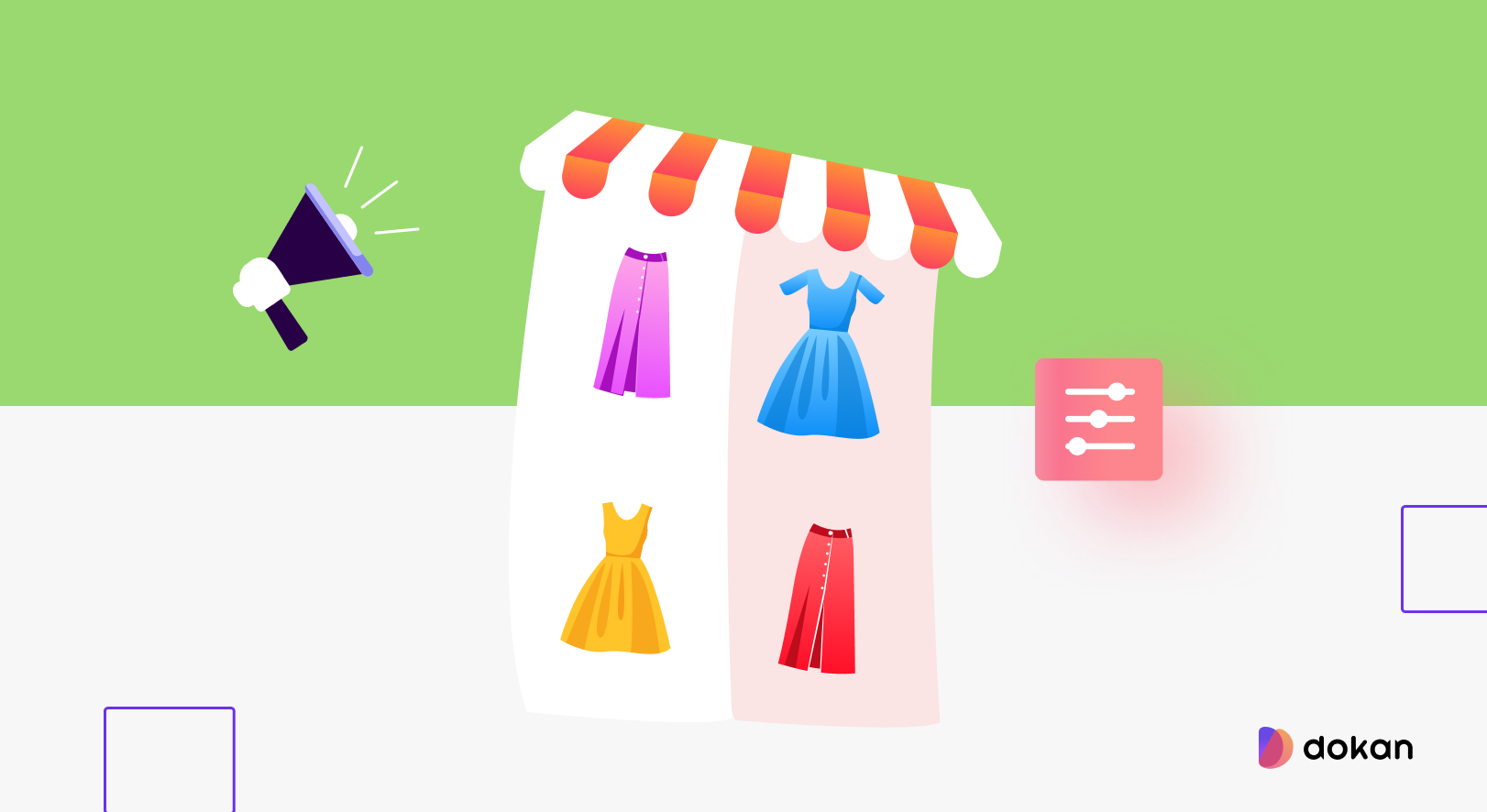
The key to success in eCommerce is consistency. It’s about showing up regularly and making small improvements that add up over time.
Take the example of a small jewelry brand that started with personalized name necklaces. They posted regularly on Instagram, shared short behind-the-scenes clips, and interacted with their followers. Slowly, more people started noticing their work and trusting their brand.
As their audience grew, they introduced new ideas like engraved charms and birthstone pendants. These small updates kept customers excited and attracted new ones who wanted something unique.
That’s why I always say to watch your competitors and listen to your customers. People’s needs change fast, and the brands that adapt are the ones that stay ahead. Stay consistent, keep improving, and your customized eCommerce business will continue to grow.
You’ve now seen how customized products can help your business stand out, attract loyal customers, and grow steadily. Let’s quickly go over the key points to remember before you get started.
eCommerce Product Customization: Key Takeaways
- Choose a niche that aligns with your brand and targets a specific audience.
- Set up an easy-to-navigate online store with secure payment options.
- Offer simple and clear customization choices for your products.
- Work with reliable suppliers to ensure product quality and timely delivery.
- Use effective marketing strategies like social media and email campaigns.
- Provide excellent customer service and clear FAQs.
- Track your performance and adapt to trends and customer feedback.
- Manage your finances carefully and plan for business growth.
Final Words
In today’s blog, we talked about how to start an eCommerce business with customized products. You learned how to pick a niche, set up your store, find good suppliers, and promote your products.
No matter what you sell, giving customers the chance to personalize their order makes your brand more memorable.
If you’re in fashion, think about offering made-to-order apparel or monogrammed accessories. For gift stores, focus on personalized keepsakes that people can give on special occasions. And if you’re in home décor, custom wall art or engraved items can help you stand out in a crowded market.
The biggest takeaway is simple: consistency and innovation go hand in hand.
Keep listening to your customers, be focused on your goal, and don’t be afraid to try new ideas. With the right effort, your customized eCommerce business can grow steadily.
So, which niche do you think has the most potential for product customization? Share your thoughts in the comments.
Subscribe to
Dokan blog
We send weekly newsletters, no spam for sure!

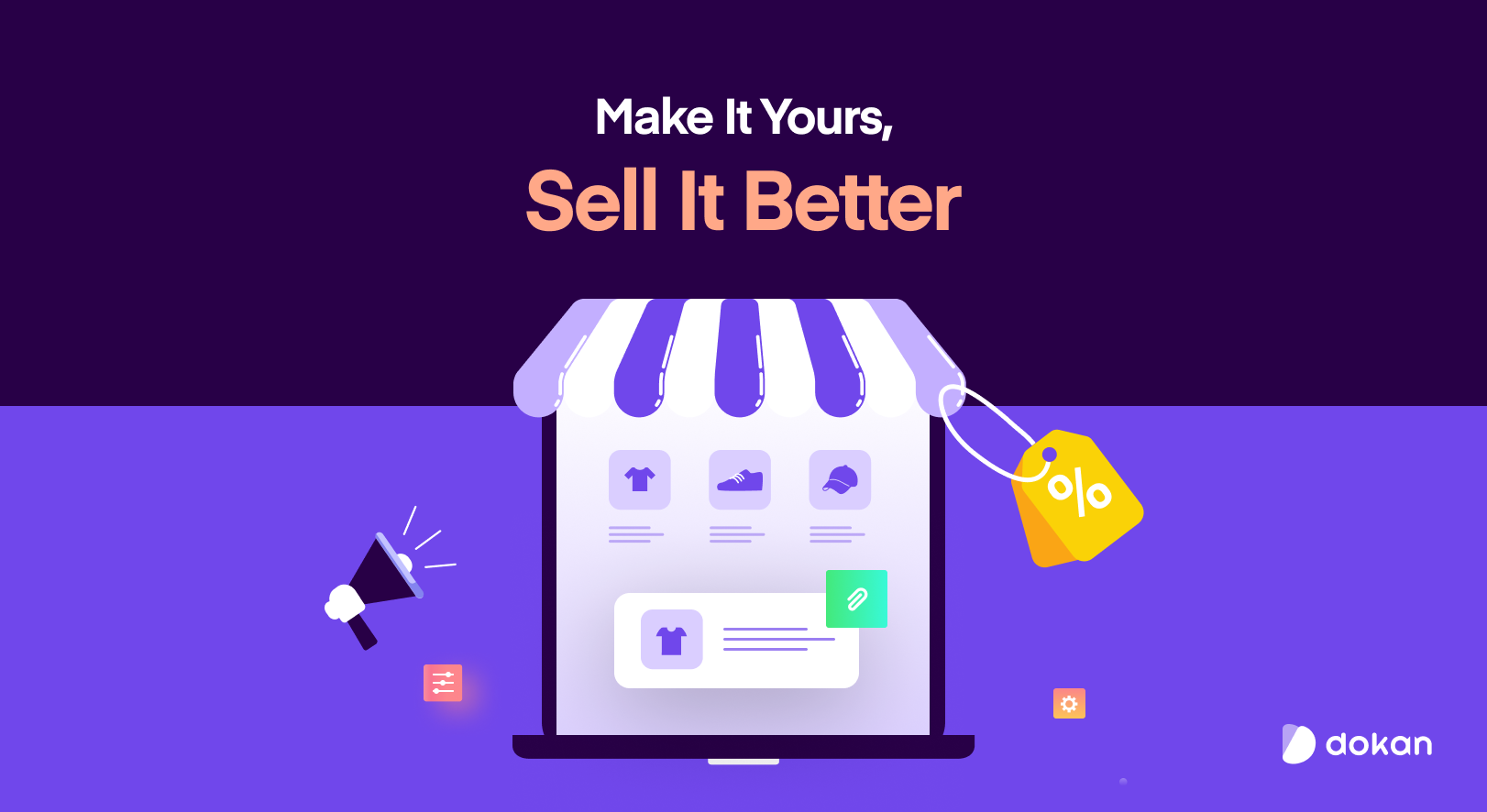


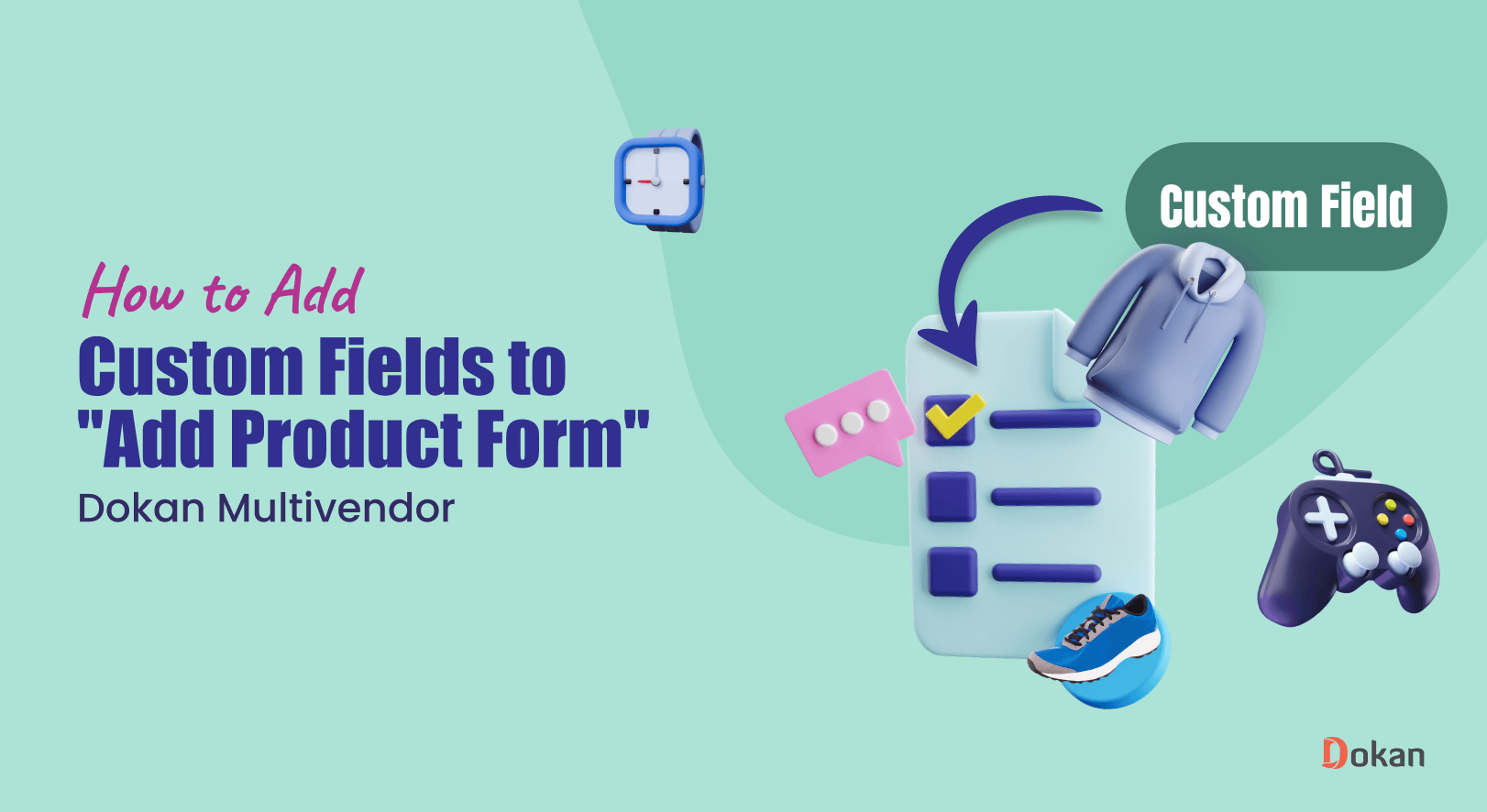

Leave a Reply